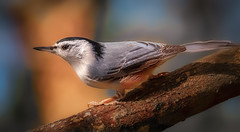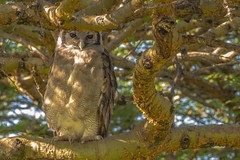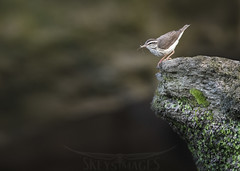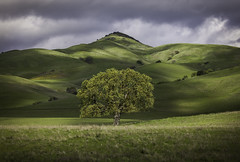Traveling opens your eyes to the small differences that make us, as a people, who we are. In America, I don’t frequently think of myself as American qua American. I sport very little red, white and blue; I personally have not eaten a cheeseburger in probably four years; I get emotional while watching Fourth of July fireworks because I love fire, not because I’m thinking all that profoundly about the bombs during the War of 1812. (Also because any strong emotion makes me cry. No matter what it is.)
Here in Northern Ireland, though, my inherent American-ness is as obvious and unavoidable as the crowing of our friendly neighborhood rooster beneath my window every morning at 4:30.
Every word I speak with its nasal Midwestern vowels, every time I peer at the coins in my hand trying to tell the difference between twenty pence and five pence, every time I push on a door that requires being pulled (the British Isles are notorious for their counter-intuitive doors, as I discover), I can sense the eyes of the Armagh population on me. It’s not in an accusatory or rude way. I’m sure they aren’t judging me negatively. They can just see that I’m different.
And “different,” in this case, means simply “American,” and all the power that has.
I always had a vague idea of what it meant to be American while I was living in the States. It meant that I was free to read any newspaper I liked, to send goofy Facebook messages to friends across the country without fear of censorship, to stand up on a street corner and shout about any political belief I held without fear of repression. Of course, the NSA scandal hit the roof just before I left the country, and when I arrived in the United Kingdom I was hardly so sure of my inalienable rights to make myself heard.
Land of the free and home of the brave, I thought disdainfully. Sure, when the government’s Big Brother-ing over my shoulder checking what I’m looking at on Twitter. Some freedom.
But then I came here to Armagh, and my understanding of freedom changed. Armagh is not the happy-go-lucky green-fields-of-shamrocks-with-pots-of-gold Ireland that I naively imagined while getting ready to leave. It’s not even Ireland, technically. If I’d understood how much contestation, strife, and war this region had gone through in the past thirty years, I’d’ve been more careful with my word choice when I innocently told friends, “I’m spending the month in Ireland!” No, technically, I’m not.
The feeling of oppression beyond some nameless government official scrolling through my Twitter feed is hovering around every corner.
I never expected to see barbed wire in Northern Ireland. I didn’t expect to see the Red Hand of Ulster so prominently displayed. I didn’t expect people to volunteer information about the Troubles so offhandedly, and I certainly didn’t expect the overwhelming tension and apprehension about the future that I gathered from our dinner last night with Tommy McKearney.
And not a bowl of Lucky Charms in sight.
Part of my identity as an American is wrapped up in the idea that there has not been an outright war fought on our soil since 1865. Not to say that Americans haven’t been in a more or less continual state of war since then, or that there haven’t been deadly tragedies within our borders, but I have never had to witness my own country ripped apart like the people of Northern Ireland have. I can’t even begin to fathom what I’m looking at here, at times.
I noticed this the last time I went abroad, but it’s hard to realize what it means to be American until you realize what it means to be something else. Last summer in France, surrounded by people with totally different lifestyles than mine, I realized just how much American culture had affected me. Here, in the middle of a community still rebuilding itself from a conflict we’re not even allowed to call a war outright, I understand another side of my culture, the privilege and sheltering from harm that I take for granted so often.
This experience may not cause me to leap up out of my chair when I return home and pull a military salute every time I see the Stars and Stripes. I’ve been a skeptic for many years now, and that part of my identity is not going to change. I’m not condoning NSA probing or wiretaps or the Iraq War or any of these things.
But one of the things about travel is that it makes you look differently at the place you’ve left behind.
The USA might not be perfect. In fact, as an institution it is deeply flawed. But it is home, and it has allowed me to grow, mature, and evolve in a safe, relatively privileged environment. It has given me the room I needed to spread my roots. If I didn’t grow up in the US, I might not have the capacity to criticize it, either legally or mentally.
And for that, however strange it seems, I can call America my home.






